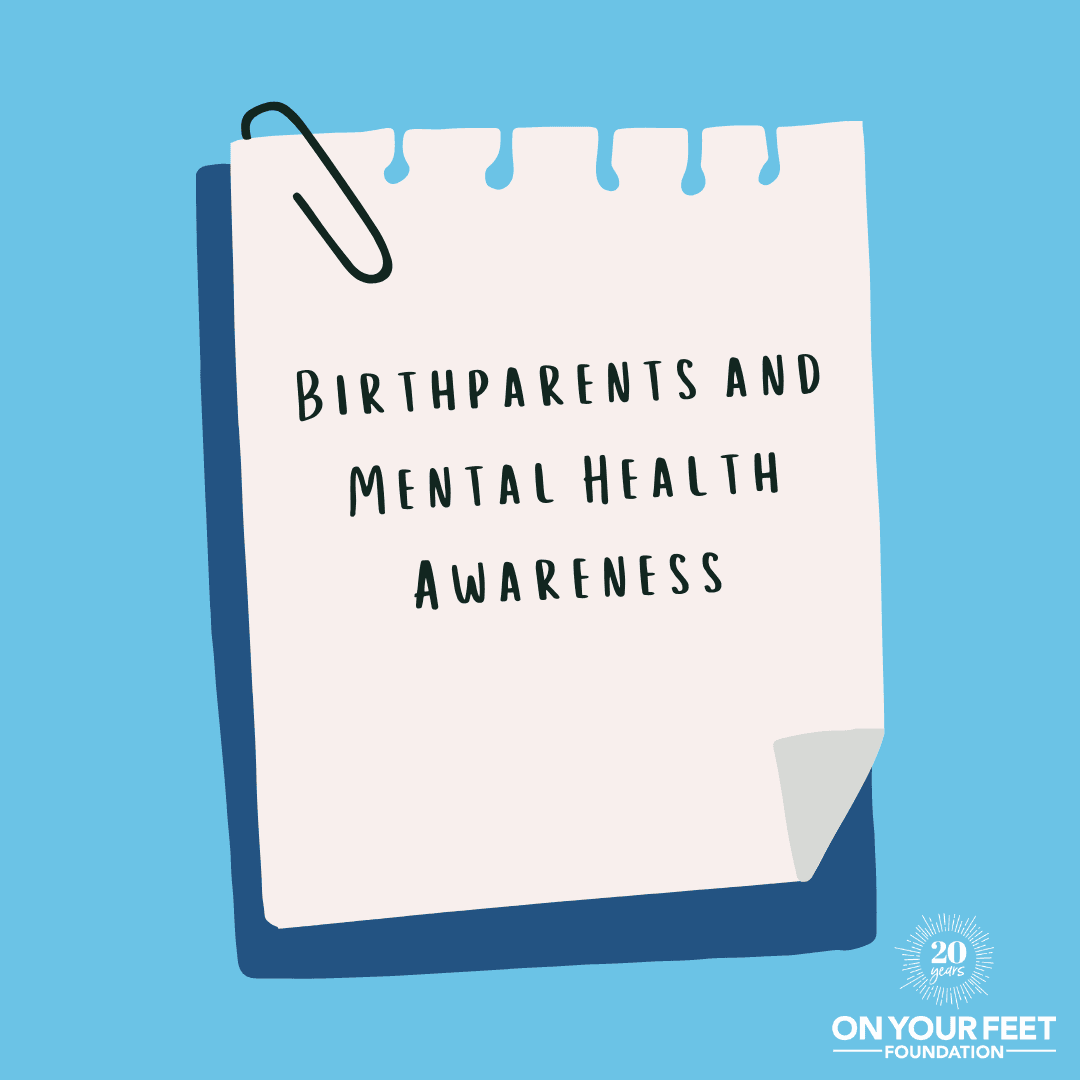
Since 1949, The month of May has been recognized as Mental Health Awareness Month in the United States, a movement spearheaded by the National Association for Mental Health, now known as Mental Health America. According to their mission statement, MHA’s work is, “driven by it’s commitment to promote mental health as a critical part of overall wellness, including prevention services for all; early identification and intervention for those at risk; integrated care, services, and supports for those who need them; with recovery as the goal.” As an organization serving a vulnerable population, we know firsthand how critical mental health is, and we are taking the month of May to highlight the importance of mental health care in our community.
This week we are going to look at why birthparent mental health awareness is critical in the adoption community, and why the entire adoption constellation needs to be involved in making sure that birthparents receive the mental health care they need. Next week, we will post a roundup of mental health resources, with particular emphasis on resources tailored specifically for non-white communities, and following that we will take a closer look at how crucial post-partum mental health care is for birthmothers, and discuss the ethical concerns surrounding their lack of access to that care.
Historically, birthparents are a largely invisible population in academic research, but there are enough studies done to give us confirmation of what we know first-hand in serving this population. Birthmother Sue Wells, when presenting at the world conference of the International Society for Traumatic Stress Studies, said this: "my own survey of around 300 British birthmothers suggests that their reactions of the loss of their children constitutes a trauma which may be lifelong. Almost half say it has affected their physical health and almost all, their mental health." She goes on to discuss how their grief increases rather than decreases over the years, something born out in research spearheaded by Elissa E. Madden in Families in Society: The Journal of Contemporary Social Services, which found that, "age of the respondents predicted an incremental decrease in satisfaction for every year they have aged.” Their conclusions go on to suggest that, “it may be that the distance afforded by time, along with the internal resources and perspective that often comes with age, may have provided an opportunity for birth mothers to look back and reflect on what could have been.”
Coupled with that is the psychological toll of carrying disenfranchised grief. Bereavement expert Kenneth Doka coined the term to describe what it feels like to experience a loss that no one seems to understand or acknowledge, and that the bearer has no public support for. Disenfranchised grief is common in birthparents, in large part because common adoption narratives don’t recognize the trauma and pain they experience as a result of relinquishment. The birthparent experience isn’t just missing from formal adoption research; it’s also missing from our cultural understanding of adoption. Too often birthparents suffer in silence, their pain exacerbated by the failure of others to acknowledge their profound loss. In the work we do with birthparents, we see that pain every day, manifested in a hundred different ways, as people try to navigate their lives while weighed down with the burden of it.
Disenfranchised grief isn’t just experienced by birthparents whose pregnancies and subsequent placement were kept hidden: it also occurs for birthmoms whose families and friends knew about their pregnancy, because the loss of a child through adoption is not publicly acknowledged or mourned, leaving mothers to suffer in silence. Birthparents are cut off from social supports leaving them few opportunities to resolve their grief, which according to Doka, “often results in them holding on to it more tenaciously than they might otherwise have done.” When all you have left of your child is grief, letting go of that grief can feel unimaginable.
Grief, loss, depression, guilt, and shame: these are hard places to get lost in, and it can be hard to admit when we need help; harder still to find that help when we do admit it. But help exists. For birthparents, that help is us, and it is an honor to serve the community we do. Encouraging steps towards better mental health is a core value for On Your Feet, and in 2021, we provided 3000 hours of comprehensive case management to our clients, awarded grants for therapeutic assistance, and helped hundreds of birthparents find and connect to a community of people who understand their grief, their struggle, and their journey, helping them feel less alone. We are here for birthparents taking brave steps to find their strength and do the hard work of healing, and we celebrate months like this one, because they remind us how important mental health is for us all, and that we should never be afraid to ask for the help we need.











